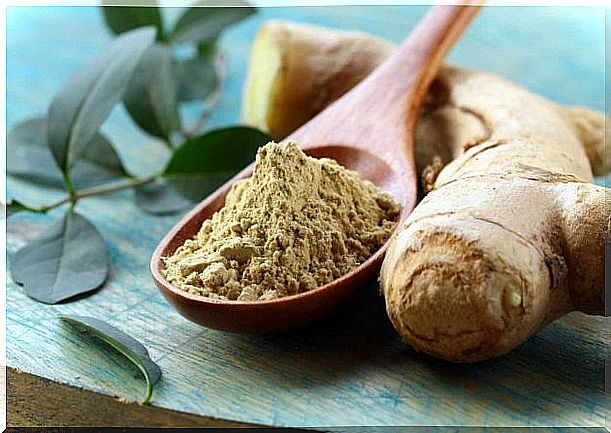Throat Infections: 9 Remedies To Relieve Discomfort
Throat discomfort is often a lesser evil, but it can get complicated if left untreated. Here are some simple and natural tips that might help you.

Throat infections are very common and it is best to go to the doctor. However, alternative medicine often recommends different remedies to ease the discomfort.
Some of the most common symptoms of a throat infection can be a cough, difficulty swallowing food or saliva, tonsillitis, fever, loss of voice, bad breath, and irritation.
Bacteria and viruses are the leading cause of sore throats, which is why the American Academy of Family Doctors (AAFP) recommends frequent hand washing and covering when coughing or sneezing.
If you have a severe sore throat, see your doctor. You may need antibiotic treatment. If, on the contrary, the discomfort is mild, you could first try one of the home remedies that we will present below. Of course, keep in mind that many do not have scientific endorsement but are passed down from generation to generation.
Relieve throat infections
1. Thyme
Various studies indicate that thyme essential oil would have antibacterial and antioxidant effects that could help fight germs.
It is believed that making an infusion with two tablespoons of thyme, the juice of a lemon and its peel could alleviate the symptoms of throat infections. To do this, you should boil the ingredients in a liter of water for 5 minutes, strain the infusion and drink at least 3 times a day.
2. Honey and lemon
This recipe is one of the most used for throat infections, due to the supposed antibacterial power of lemon and honey. Take a fresh lemon and cut it into pieces. Pour it into a cup of hot water and add a tablespoon of honey. Let it sit for a while and drink the mixture.
3. Apple cider vinegar
Apple cider vinegar is recommended to lose weight, fight fungus on the skin and as an antiseptic, according to different investigations. Pour two tablespoons of apple cider vinegar into half a glass of water, gargle with this mixture frequently.
4. Salt water
This remedy is very simple and is usually one of the traditional advice of grandmothers. Just take a glass of warm water and add a little salt, mix well and gargle. We have not found studies to support such use.
5. Garlic
Garlic is attributed various properties, such as being an antibiotic, eliminating harmful bacteria, being fungicidal and antiviral. An article published in 2014 has indicated that it could have antimicrobial effects and even be beneficial in cases of high blood glucose concentration. However, more studies would be necessary.
Crush a garlic and mix with half a glass of water, drink three times a day and if the smell or taste bothers you a lot, replace the water with a juice.
You can also boil a glass of milk and add 4 or 5 garlic. When the milk reduces by half, you can turn it off, let it cool and drink.
6. Vitamin C
Vitamin C is one of the most important for the body, as it helps the absorption of iron, prevent osteoporosis and strengthen the immune system, so it would also help fight bacteria.
7. Honey, grapefruit and cinnamon
Making a smoothie with honey, grapefruit juice and a bit of cinnamon could be another good option, since it would combine the antibacterial effects of honey with the vitamin C of grapefruit.

8. Ginger with cinnamon and lemon
The properties of ginger help the body fight cold symptoms and illnesses caused by viruses.
Pour 1 tablespoon of grated ginger, 1 cinnamon stick, and two tablespoons of grated lemon peel into a pan. Let cook for 15 minutes and pour three tablespoons of the mixture into ½ cup of warm water.
9. Honey and lemon tea
This is one of the favorite home remedies for sore throat relief. Mix two tablespoons of honey and 1 tablespoon of lemon juice to a cup of boiling water, let it cool slightly and drink it.
It is essential that you avoid smoking and drinking alcohol, do not consume caffeine-rich beverages such as tea, coffee and cola drinks. Eat soft foods and drink enough water but not cold. If the discomfort persists or worsens, always consult your doctor.









